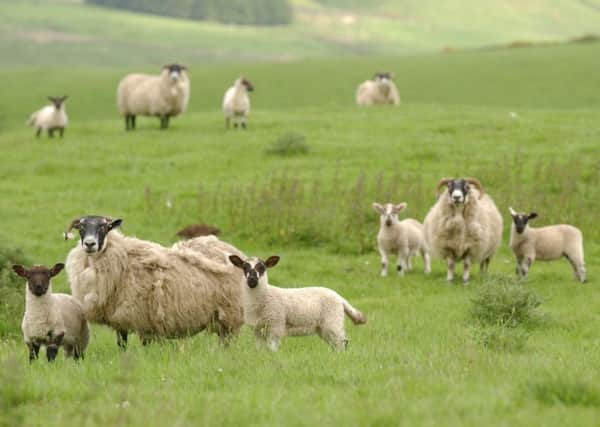Travel broadens the mind and develops meaty ideas
This article contains affiliate links. We may earn a small commission on items purchased through this article, but that does not affect our editorial judgement.


In his Nuffield Scholars’ report, which has just been published, McGowan says that too much emphasis has been placed on maximising outputs and not enough on minimising inputs, especially reducing feed costs.
On his travels in the United States, Canada, New Zealand and Australia, he saw breeders and breeding programmes where up to 15 per cent improvement in converting food into meat had been achieved.
Advertisement
Hide AdAdvertisement
Hide AdHis travels also convinced him that it was equally important to select for other measures of efficiency such as limiting mature size and focusing on longevity and fertility.
McGowan said: “There is a need for keener cost-control in the UK beef and sheep sectors. In beef systems, feed costs are paramount, and ease of management is often the limiting factor in sheep systems.
“Cow and ewe efficiency and sheep ‘operator comfort’ are worthy approaches to tackle these challenges. The genetics to drive these approaches have been somewhat ignored.”
McGowan has previously been critical of the present system of selling pedigree livestock in this country and his travels have reinforced his views.
“A system of collective sales encourages competition between breeders to have animals larger and fatter at sale time,” he said.
“This has resulted in commercially unrealistically high levels of concentrates being fed in herds and flocks whose progeny are expected to perform on a lower level of nutrition. This has implications for the young sires’ own fitness/ability to work, and also their lifespan.”
In his extremely thoughtful and, at times, profound report, McGowan states that selecting livestock for efficiency is about merging economics and genetics and admits these make uncomfortable bedfellows.
“The geneticist will know that great leaps forward are made by those who don’t count the cost. The economist will know that for every gain there is to be made, there will be a cost to pay at some point.”
Advertisement
Hide AdAdvertisement
Hide AdAs someone steeped in livestock breeding, he wryly adds: “The cattleman will know that neither of them is likely to pick the right bull.”
His own family farming enterprise is based on providing “functional, efficient and robust breeding stock” for other farmers, which he does from the 220 Simmental and Luing cows and 1,100 Texel and Llyen ewes at Incheoch. All are pedigree registered and most are performance recorded. Some 20 bulls and 100 rams, along with some breeding females and finished stock, are sold annually; the rams coming under the hammer at the McGowan’s “Working Genes” on-farm auction sale.
While McGowan has bred and exhibited Highland Show Champions and brought out stock for record prices and is proud of these achievements and the animals who took him there, his real pride comes from practical livestock figures from his own farm.
“I am really passionate about my Luing cows with an average calving interval of 363 days, and my Lleyn ewe flock who wean 83 per cent of their bodyweight going to the ram, both in low input systems.”
